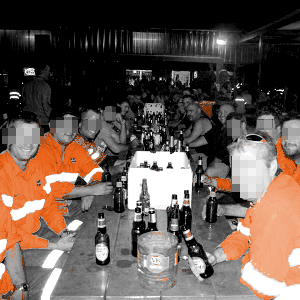Mine site assaults reviewed
 The Senate is reviewing sexual assault allegations at the state’s mine sites.
The Senate is reviewing sexual assault allegations at the state’s mine sites.
Four separate allegations of sexual assault have been reported by BHP employees and contractors since late 2019, while another alleged attack was reported at a Newcrest mine site in 2020, and there was an alleged incident at Fortescue Metals in April this year.
Rio Tinto says it has had instances of sexual assault and harassment, but has not said when.
This week, the federal Senate's Education and Employment Legislation Committee will examine the allegations as part of its inquiry into the Sex Discrimination Act (Respect at Work) Amendment Bill 2021.
The bill would impose legislative changes recommended in Sex Discrimination Commissioner Kate Jenkins' 2020 Respect at Work report.
The report suggested the rate of sexual harassment in the Australian mining industry about four times higher than the average across all industries.
Minerals Council chief executive Tania Constable says the attacks are "shocking".
“It's unacceptable, it's illegal and we don't want to see that at all in the mining industry,” she said.
“We want to see a number of things occur — that the culture is changing, the prevention measures and response measures are put in place, and practical things like assessing a mine site, making sure that it's appropriate for gendered use — that people feel secure in being able to go to work and then go back to their accommodation.”
Some big mining firms have already changed the rules around the provision of alcohol.
Rio Tinto has introduced a four-drink daily alcohol limit of mid-strength beer and cider. Wine sales on site are limited to a maximum of two 187ml bottles per person per day.
At BHP, workers face a daily alcohol limit of four standard drinks per day, while FMG employees must undergo daily alcohol screening but can drink up to six alcoholic drinks a day.







 Print
Print